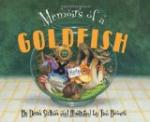Not long ago I attended a dinner given on Fifth Avenue the invitation to which had been eagerly awaited by my wife. We were asked to dine informally with a middle-aged couple who for no obvious reason have been accepted as fashionable desirables. He is the retired head of a great combination of capital usually described as a trust. A canopy and a carpet covered the sidewalk outside the house. Two flunkies in cockaded hats stood beside the door, and in the hall was a line of six liveried lackeys. Three maids helped my wife remove her wraps and adjust her hair.
In the salon where our hostess received us were hung pictures representing an outlay of nearly two million dollars—part of a collection the balance of which they keep in their house in Paris; for these people are not content with one mansion on Fifth Avenue and a country house on Long Island, but own a palace overlooking the Bois de Boulogne and an enormous estate in Scotland. They spend less than ten weeks in New York, six in the country, and the rest of the year abroad.
The other male guests had all amassed huge fortunes and had given up active work. They had been, in their time, in the thick of the fray. Yet these men, who had swayed the destinies of the industrial world, stood about awkwardly discussing the most trivial of banalities, as if they had never had a vital interest in anything.
Then the doors leading into the dining room were thrown open, disclosing a table covered with rosetrees in full bloom five feet in height and a concealed orchestra began to play. There were twenty-four seats and a footman for each two chairs, besides two butlers, who directed the service. The dinner consisted of hors-d’oeuvre and grapefruit, turtle soup, fish of all sorts, elaborate entrees, roasts, breasts of plover served separately with salad, and a riot of ices and exotic fruits.
Throughout the meal the host discoursed learnedly on the relative excellence of various vintages of champagne and the difficulty of procuring cigars suitable for a gentleman to smoke. It appeared that there was no longer any wine—except a few bottles in his own cellar—which was palatable or healthful. Even coffee was not fit for use unless it had been kept for six years! His own cigars were made to order from a selected crop of tobacco he had bought up entire. His cigarettes, which were the size of small sausages, were prepared from specially cured leaves of plants grown on “sunny corners of the walls of Smyrna.” His Rembrandts, his Botticellis, his Sir Joshuas, his Hoppners, were little things he had picked up here and there, but which, he admitted, were said to be rather good.
Soon all the others were talking wine, tobacco and Botticelli as well as they could, though most of them knew more about coal, cotton or creosote than the subjects they were affecting to discuss.
This, then, was success! To flounder helplessly in a mire of artificiality and deception to Tales of Hoffmann!




